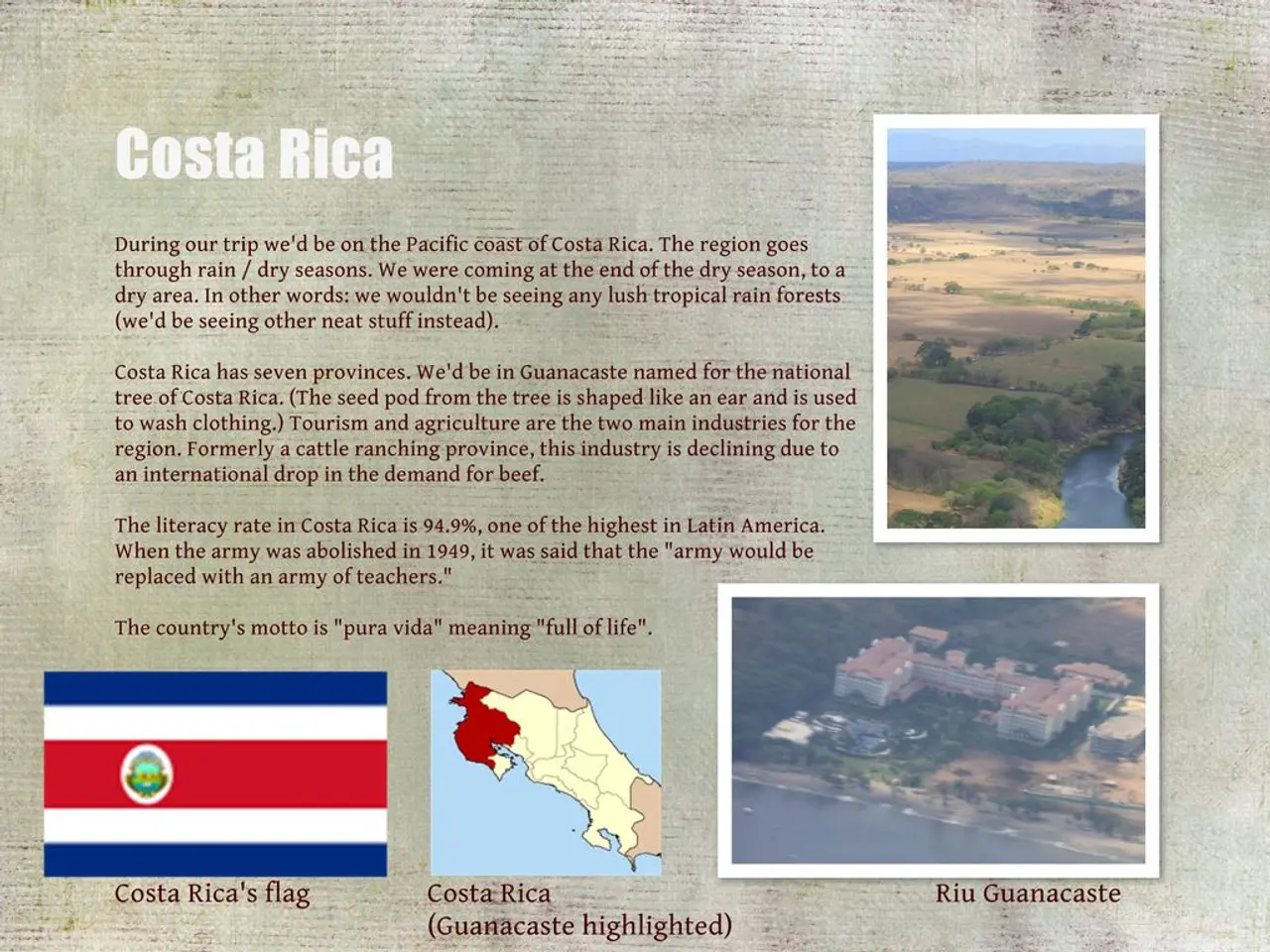Last-minute US tariff reductions for Malaysia, Thailand, and Cambodia: A potential reward for a truce agreement?
The Southeast Asian conflict between Cambodia and Thailand, which has been a source of regional tension for years, has finally seen a pause, thanks to a ceasefire brokered by the United States and Malaysia under the ASEAN chairmanship.
This US-endorsed ceasefire, mediated by Malaysian Prime Minister Anwar Ibrahim, was a significant step towards de-escalating military tensions and halting violent clashes over disputed border areas, including the Preah Vihear temple. The talks, held in Malaysia on July 28, 2025, were urgently called for by US President Donald Trump, who also paused trade negotiations until peace was restored.
While the ceasefire has helped stabilize the region and prevent further escalation, it did not directly influence tariff reductions for Malaysia, Thailand, or Cambodia. The focus of these discussions was primarily on diplomatic dialogue rather than immediate economic agreements. However, the US intervention did suggest that economic discussions were contingent on conflict resolution.
The tariff reduction for Malaysia, Cambodia, and Thailand, which came just days after the ceasefire, was influenced by several contributing factors. The willingness of these countries to open up their markets to the US played a significant role. This move is considered a victory not only for their domestic economies but also for US foreign policy in the region.
The tariff reduction is a strategic move by the US to strengthen its relations with these countries, and it is a result of prolonged talks between the Southeast Asian nations and the United States. The success of the tariff reduction is a significant step in these countries' efforts to distance themselves from China's influence.
Joanne Lin, a senior fellow at the ASEAN Studies Centre at ISEAS-Yusof Ishak Institute, stated that the timing and geopolitical backdrop were crucial in securing the reduced tariff rate for Malaysia, Thailand, and Cambodia. The tariff reduction for these countries is a victory that enhances their peacemaker image, following the US-endorsed ceasefire.
In conclusion, the US-endorsed ceasefire between Cambodia and Thailand, mediated by Malaysia, has had a primary effect on security stabilization and diplomatic engagement. The linkage to tariff reductions or trade benefits is indirect at best, with trade talks paused and likely to resume under more peaceful conditions. However, the tariff reduction for Malaysia, Cambodia, and Thailand is a significant development that strengthens US-Southeast Asian relations and helps these countries distance themselves from China's influence.
- In the realm of general-news, the tariff reduction for Malaysia, Cambodia, and Thailand, a victory for their domestic economies, is a strategic move by the US to strengthen relations in East Asia.
- The southeast Asian business landscape has been reshaped following the US-endorsed ceasefire, as the tariff reduction for these countries indicates a stepping stone towards distancing themselves from China's influence.
- While politics played a key role in securing the US-endorsed ceasefire in east Asia, the recent breakthrough in finance through tariff reductions demonstrates the success of diplomatic dialogue for the region's top stories.




